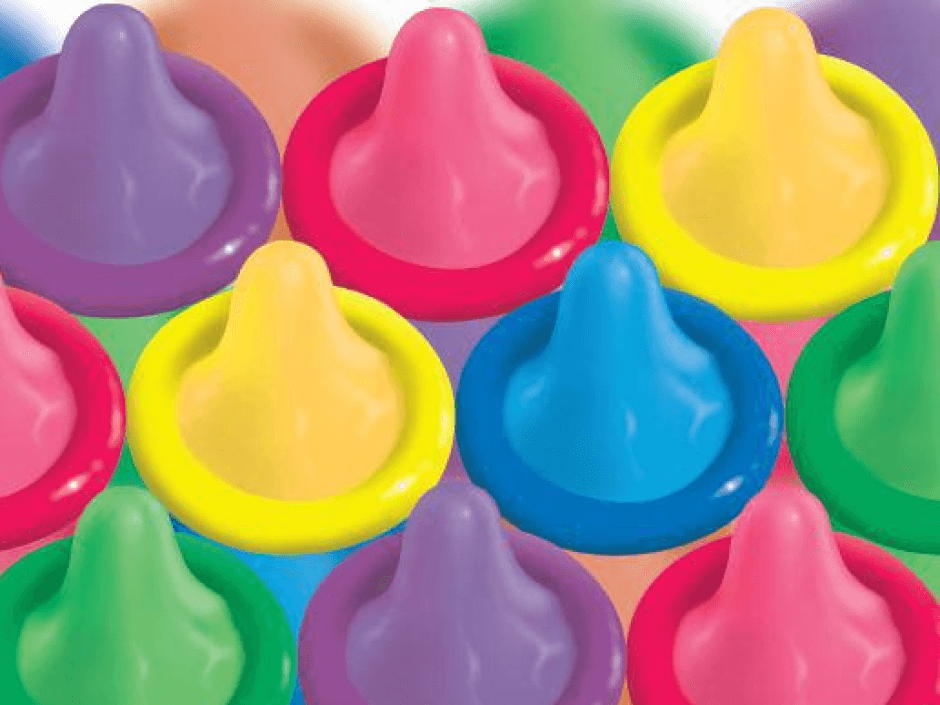Condoms Allergies
Aside from direct infective agents, there are many other sources of burning, itching, or aching in the vaginal barrel that can produce chronic dyspareunia. Among those most frequently encountered are the sensitivity reactions associated with intravaginal chemical contraceptive materials.
Many women develop vaginal sensitivity to chemical factors included in contraceptive creams, jellies, suppositories, foams, or foam tablets. When persistent itching or burning is intense enough to engender the symptoms of dyspareunia during or shortly after intercourse, and when any of these above-mentioned intravaginal chemical contraceptive agents are employed routinely during coital connection, the possibility of sensitivity to the chemical agents should always be kept in mind.
There also are occasional irritations created by the rubber used in manufacturing both diaphragms and condoms. In a few women the response of the vaginal mucosa to latex products is quite irritative in character.
When these contraceptive techniques are employed with regularity and a chronic non infectious irritation in the vagina causes obviously increasing dyspareunia, sensitivity to rubber products should be suspected. The sensitivity to rubber is quite infrequent but must be kept in mind in the differential diagnosis of non infectious, irritative, vaginal dyspareunia.
Agents frequently most often responsible for making the vaginal mucosa sensitive to infective processes and emphasizing the potential irritation of maintained penile thrusting are the various douching preparations.
Many women feel they must douche after every coital exposure to maintain cleanliness. This is one of the most persistent and widespread misconceptions in the folklore of human sexual functioning. From a cleanliness point of view, there is not the slightest need for douching after intercourse.
The vagina returns to its natural protective pH value within 6 to 8 hours after seminal-fluid deposition. Repeated douching usually accomplishes only the untoward result of washing protective levels of residual acidity from the vagina.
Thereafter, secondary infection frequently develops from the elevated levels of pH usually found in the post-douching vaginal environment. Additionally, proprietary products used in douching can create a reactive, chemical-type vaginitis of the same pattern as that stimulated by intravaginal chemical contraceptives.
Esthetically concerned women should be reassured by authority that the simple expedient of external washing with soap and water is all that is necessary to maintain security from post ejaculatory drainage and to avoid any suggestion of post coital odor.
Forceful Penile Thrusting
There is another type of chronic vaginal irritation that should be highlighted. It frequently is seen associated with clinical complaints of dyspareunia and is described as senile vaginitis. Older women not supported by steroid protection techniques develop thin, atrophic mucosal surfaces in the vagina.
These tissue-paper-thin areas crack and bleed easily under duress of forceful or maintained penile thrusting. Many women in the 50 to 70 year age group complain of vaginal burning and irritation not only during but even for hours and occasionally days after coital exposure due to the atrophic condition of the mucosal lining of the vagina.
Sex Steroid
Aging women can be fully protected from these distressing symptoms by initiation of adequate sex steroid support. Although seen infrequently, yet in the same physiological category as senile vaginitis, is radiation reaction in the vagina. After local radiation for carcinoma, the vaginal barrel shrinks, the mucosa becomes atrophic, and dyspareunia usually develops not only from the atrophic mucosa but also on the basis of loss of vaginal wall elasticity and marked reduction of lubrication production.

